Candidate Speaks
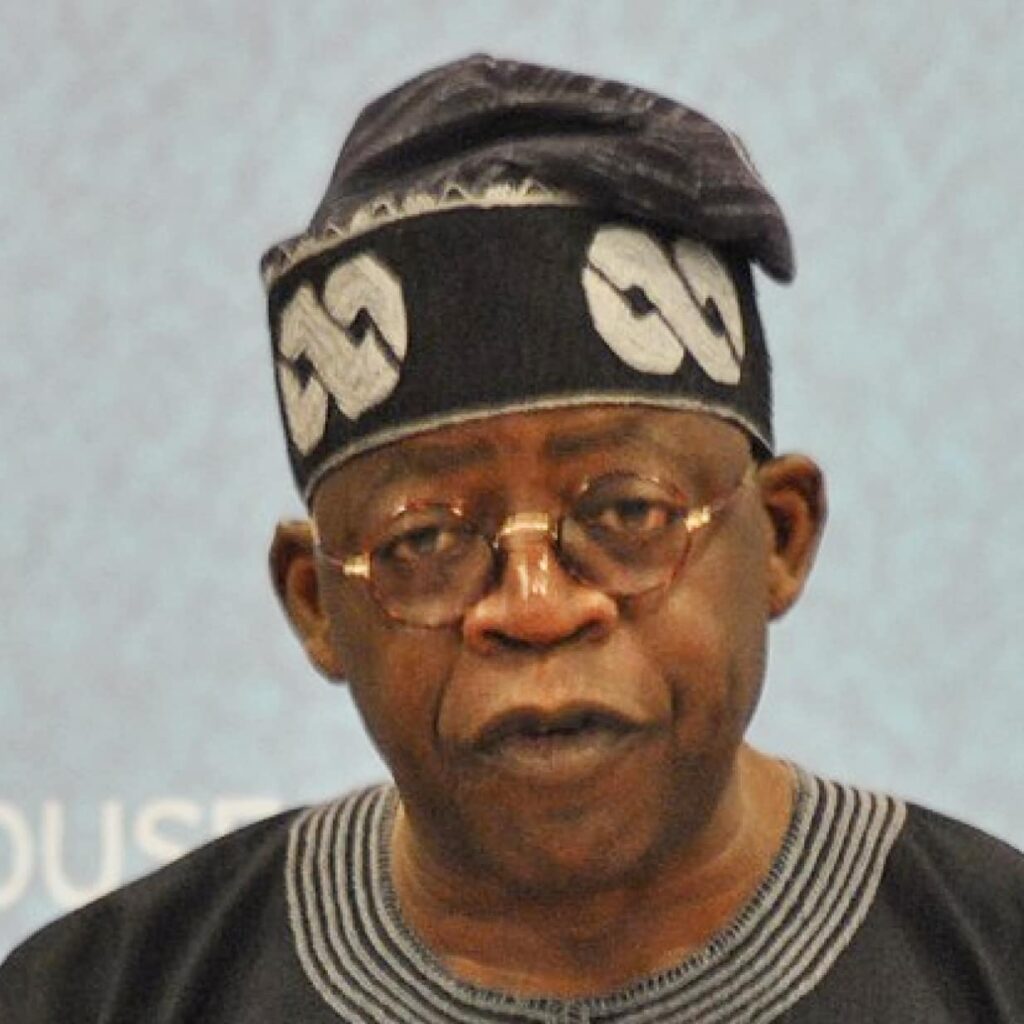
Bola Ahmed Tinubu
Political Party: All Progressives CongressAlma Mater: Chicago State University
Occupation: Accountant, politician
Age: 70
Presidential
Bola Ahmed Adekunle Tinubu (born 29 March 1952) is a Nigerian accountant and politician who served as the Governor of Lagos State from 1999 to 2007 and Senator for Lagos West during the brief Third Republic. In June 2022, he was chosen as the All Progressives Congress nominee in the 2023 Nigerian presidential election.
Tinubu spent his early life in southwestern Nigeria and later moved to United States where he studied Accounting at Chicago State University. He returned to Nigeria in the early 1980s and was employed by Mobil Nigeria as an accountant, before entering politics as a Lagos West senatorial candidate in 1992 under the banner of the Social Democratic Party. After dictator Sani Abacha dissolved the Senate in 1993, Tinubu became an activist campaigning for the return of democracy as a part of the National Democratic Coalition movement. Although he was forced into exile in 1994, Tinubu returned after Abacha’s 1998 death triggered the beginning of the transition to the Fourth Republic.
In the first post-transition Lagos State gubernatorial election, Tinubu won by a wide margin as a member of the Alliance for Democracy over the Peoples Democratic Party’s Dapo Sarumi and the All People’s Party’s Nosirudeen Kekere-Ekun. Four years later, he won re-election to a second term over the PDP’s Funsho Williams by a reduced margin. Tinubu’s two terms were marked by attempts at modernizing the city of Lagos and his feuds with the PDP-controlled federal government. After leaving office in 2007, he since played a key role in the formation of the All Progressives Congress in 2013. Long and controversial, Tinubu’s career has been plagued by accusations of corruption and questions about the veracity of his personal history
Fact Check
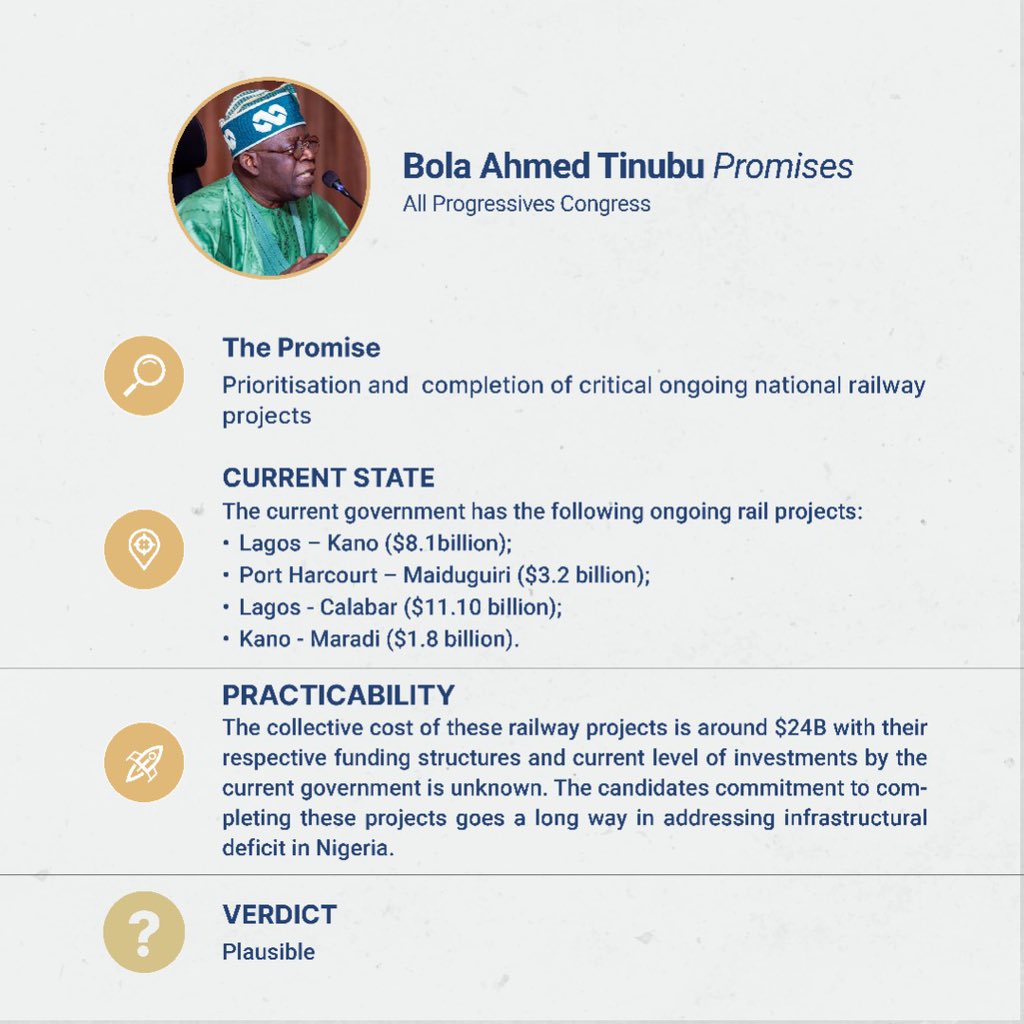
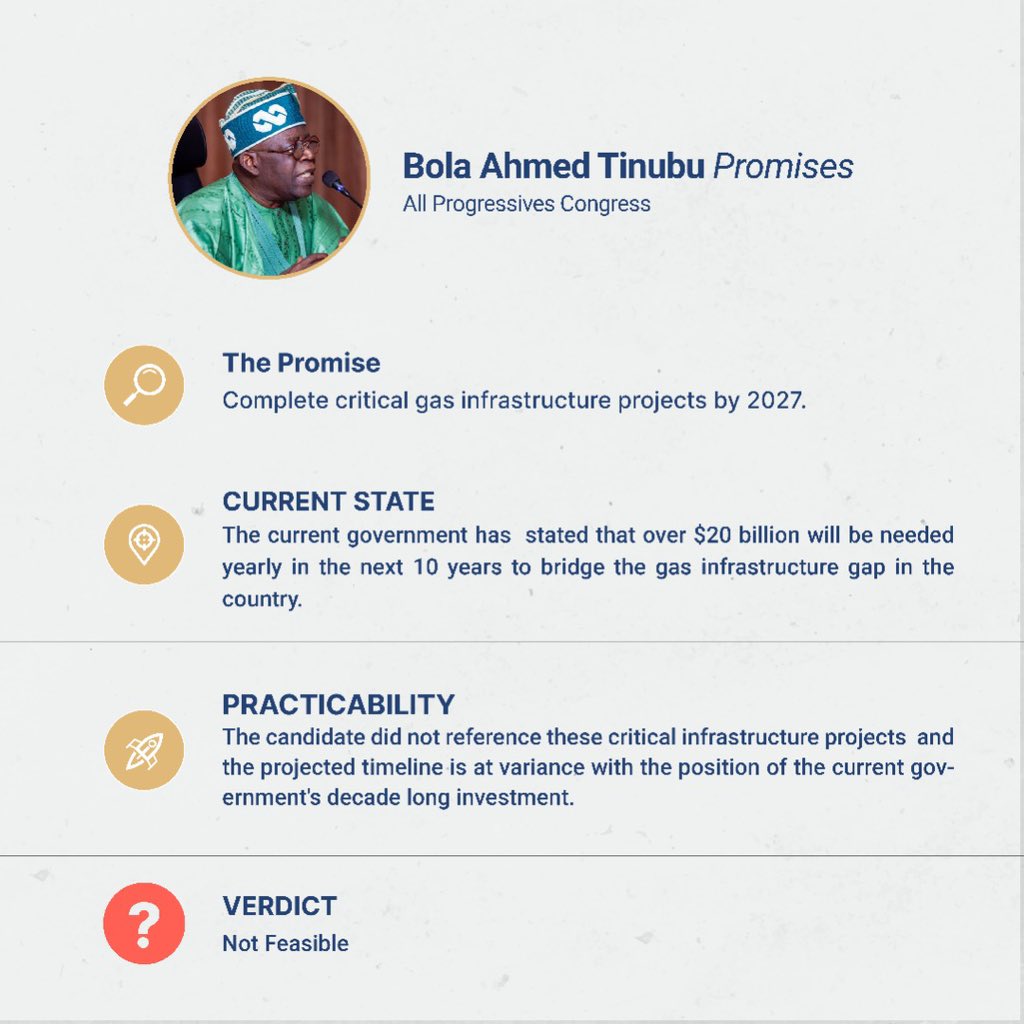
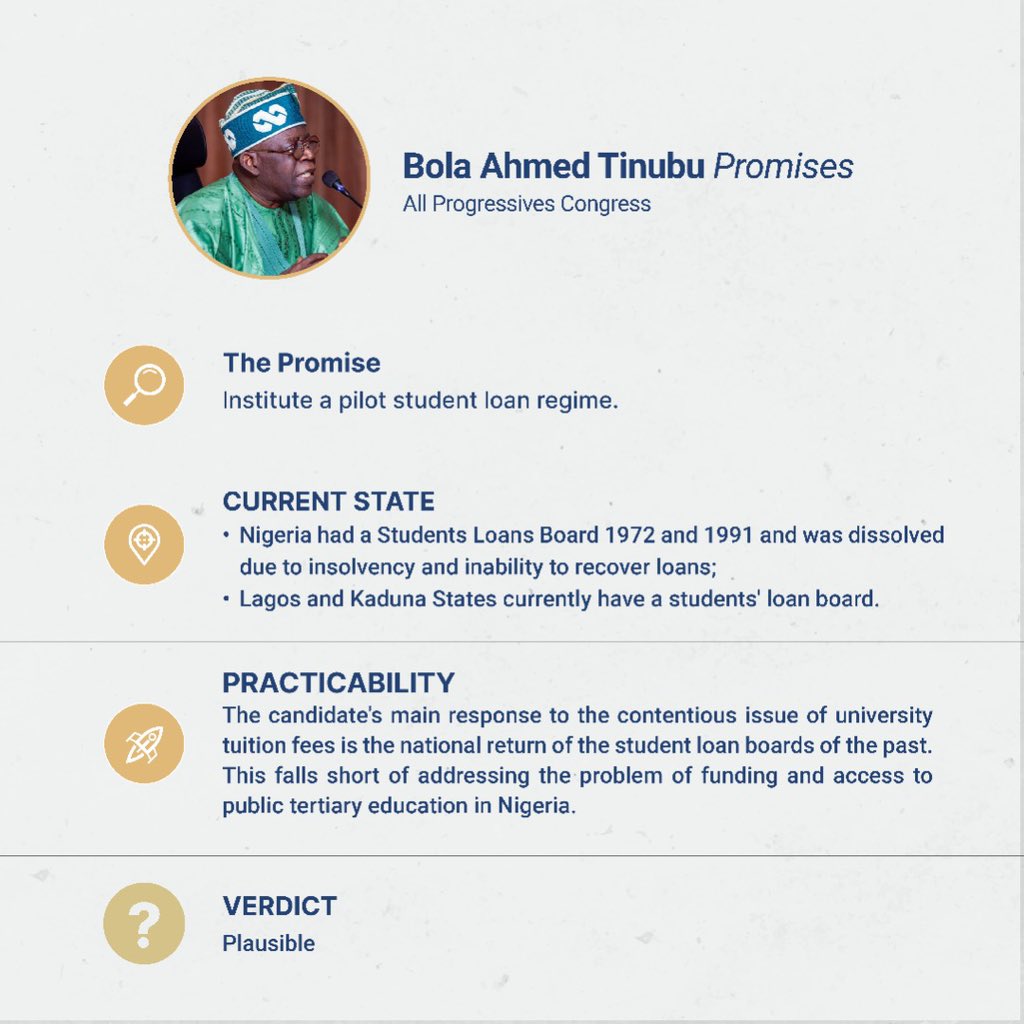
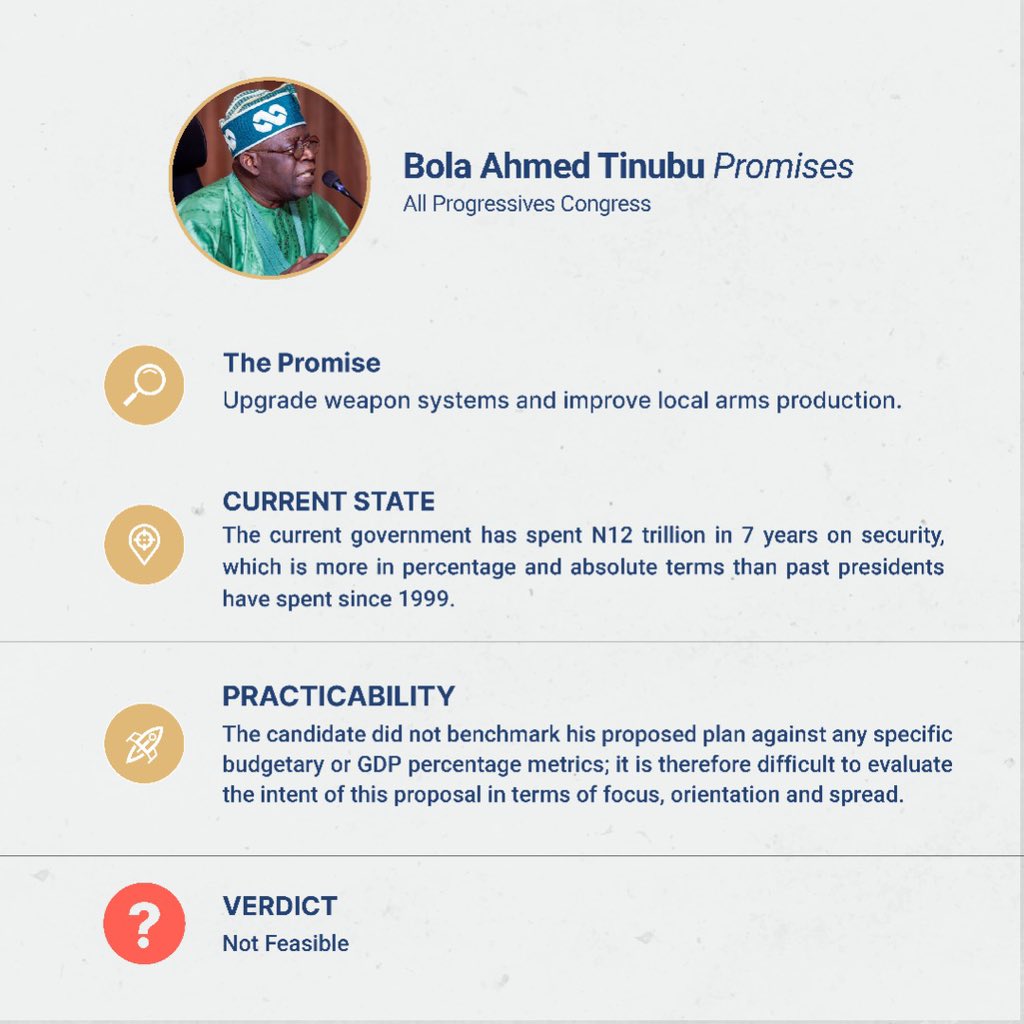
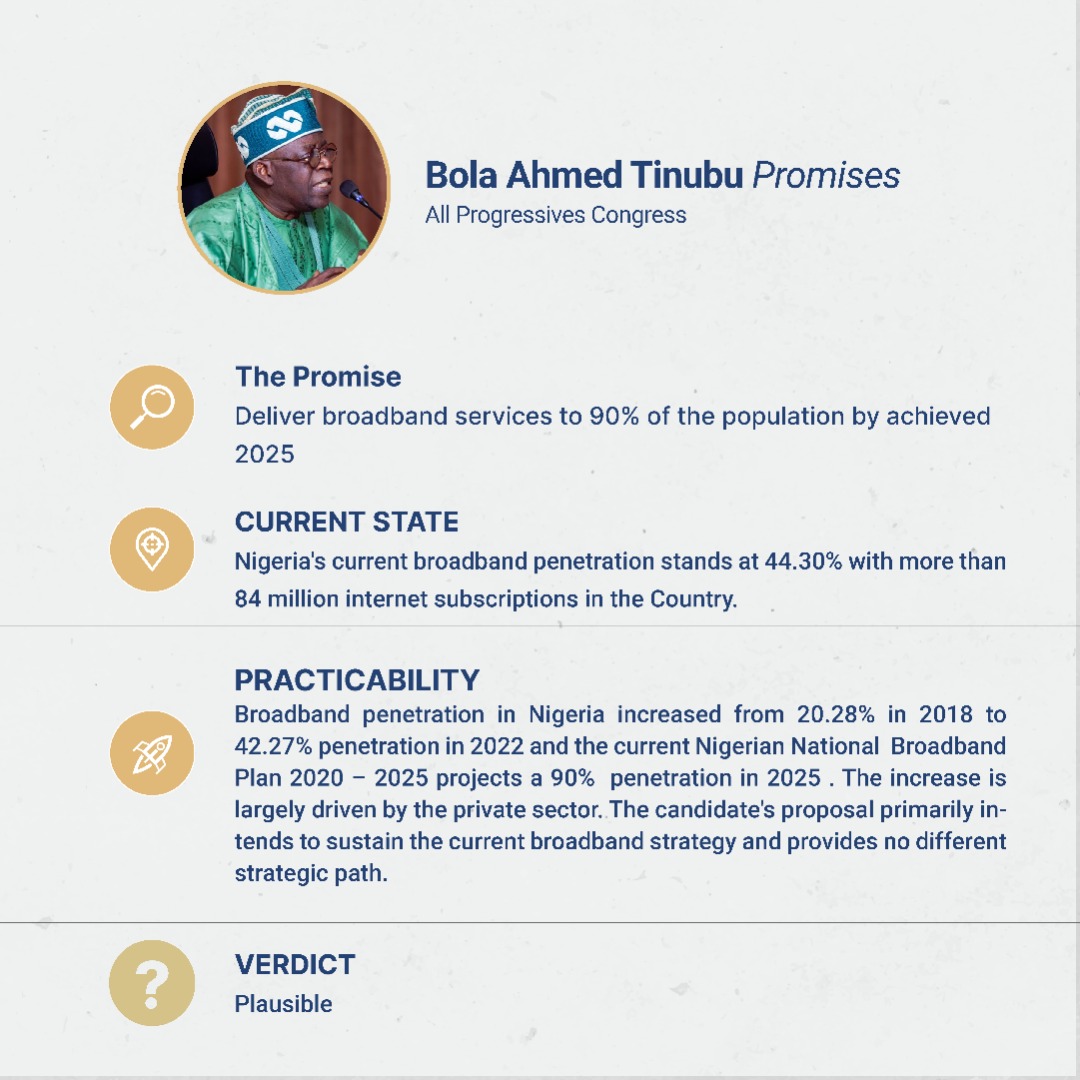
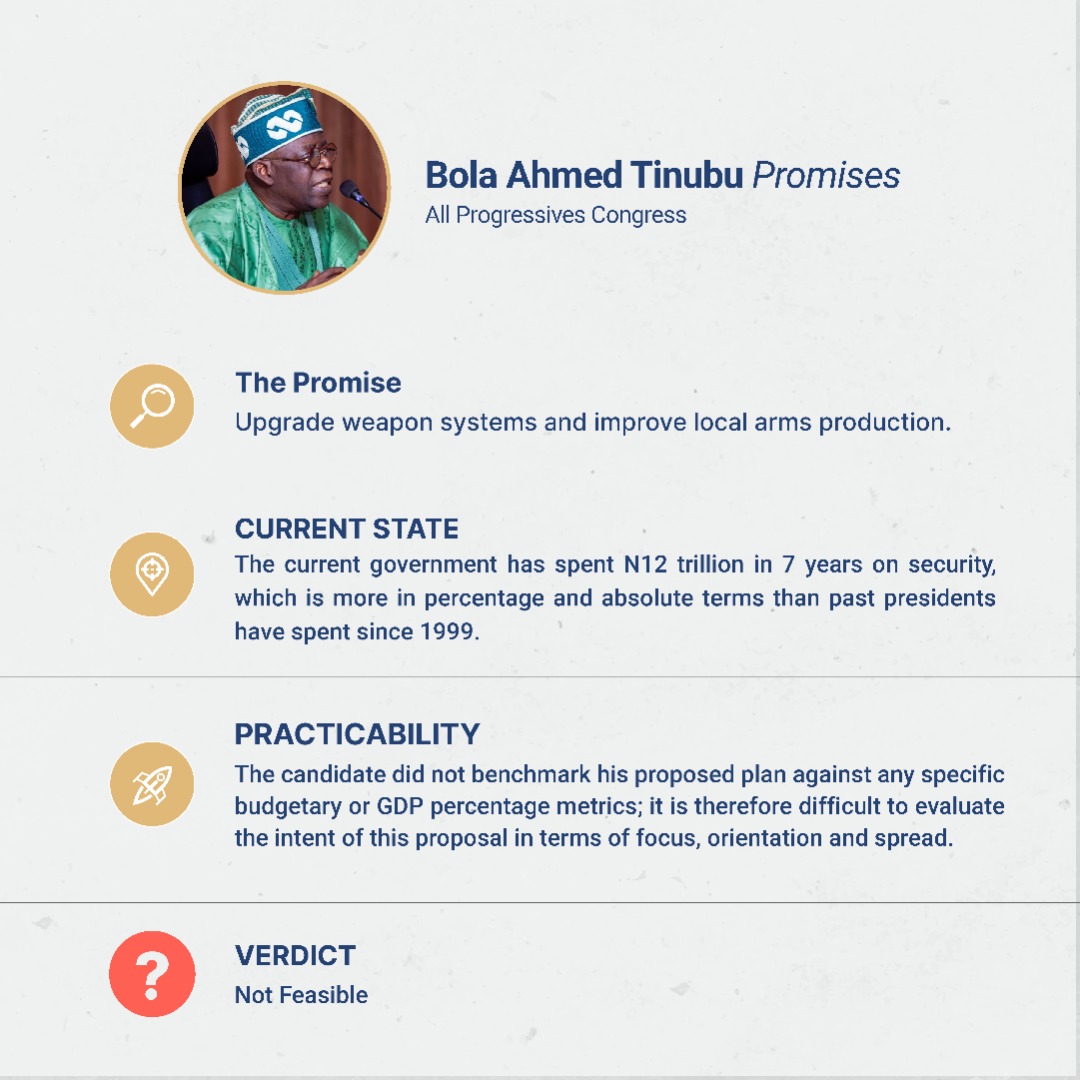
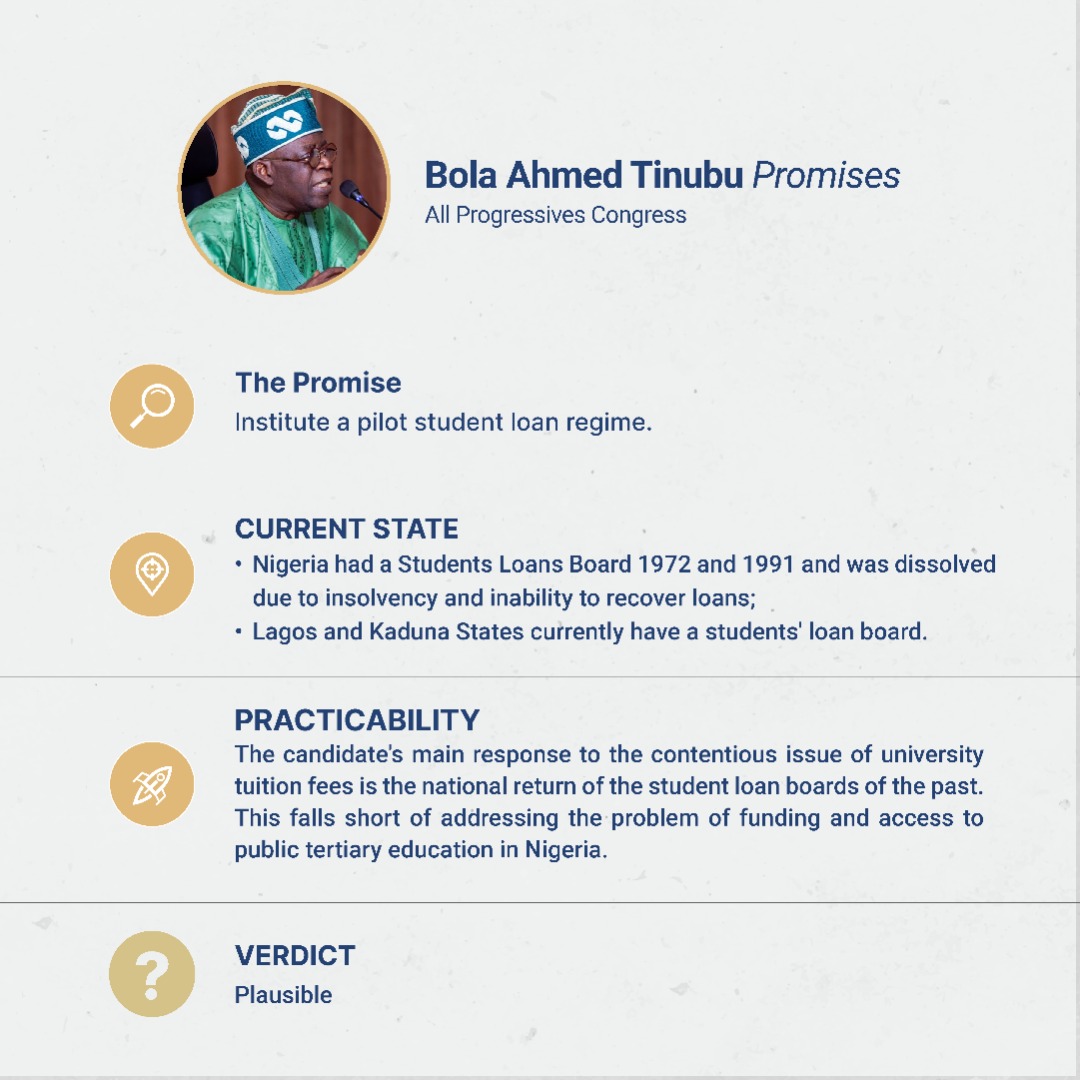
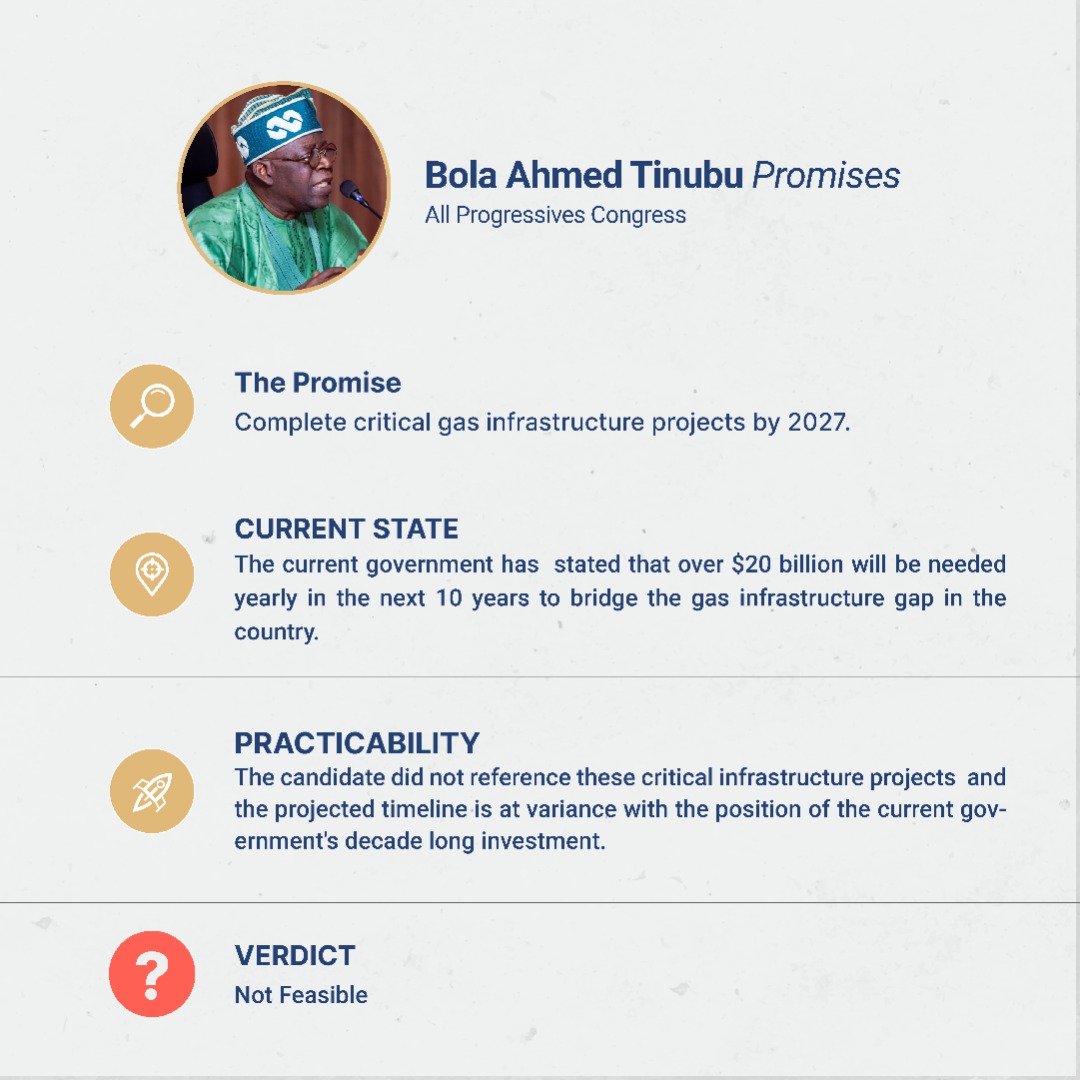
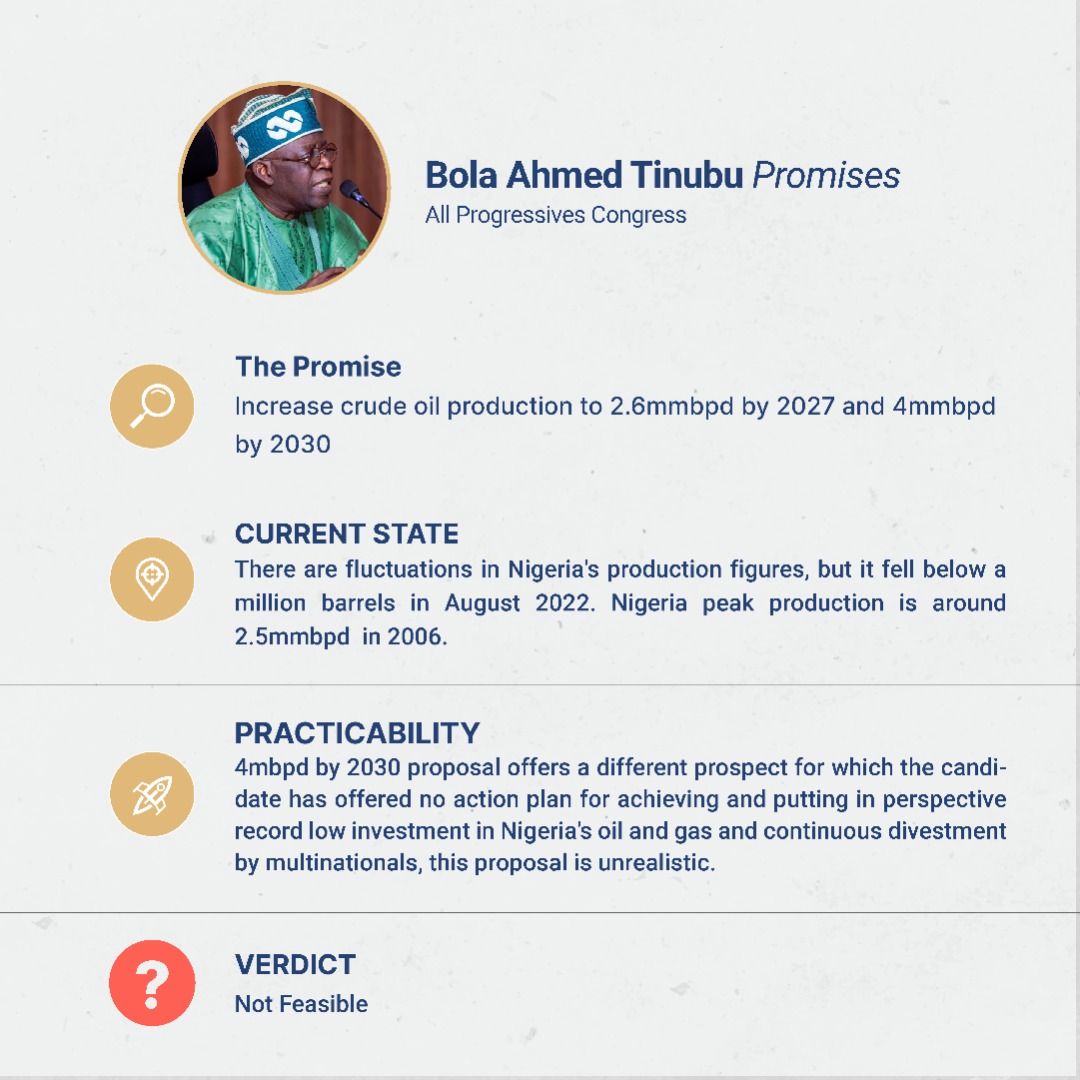
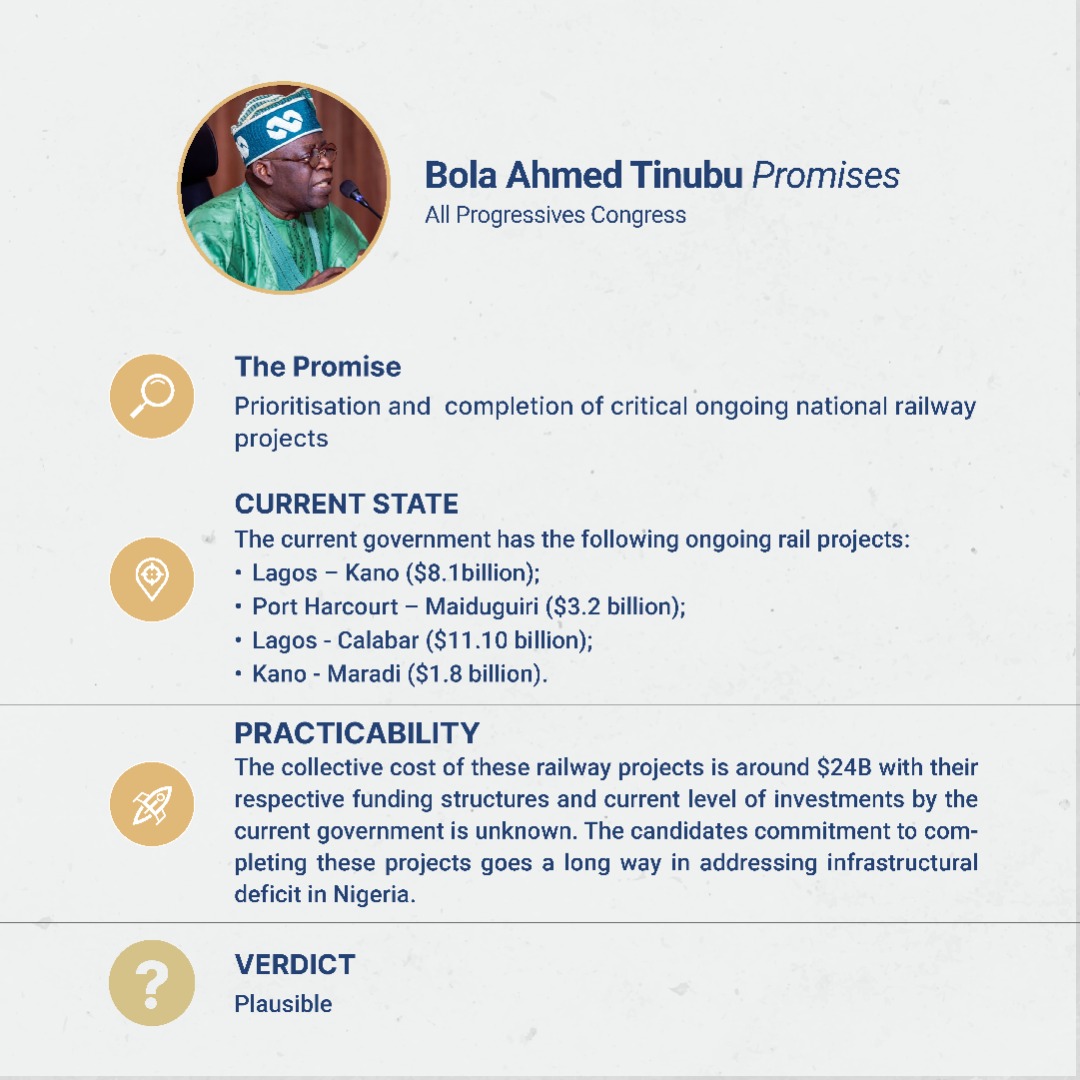
Policy Document
Promises
A Tinubu administration will reform the education sector by focusing on the following indices: quality, access, funding, management, effectiveness, and competitiveness. The reforms we institute will be based on three objectives:
- ensuring an abundance of qualified and capable educators,
- creating safe and conducive learning environments,
- improving educational outcomes in Nigeria.
To rise to the challenge of improving the healthcare fortunes of our people, our healthcare policy shall entail:
- Health Sector Governance and Leadership,
- Equity and Quality,
- Primary and Secondary Healthcare,
- Preventative Care,
- Health Financing and National Health,
- Insurance,
- Caring for Healthcare Workers and Job Creation,
- The Next Public Health Emergency,
- Mental Health and Drug Abuse,
- Domestic Research.
We shall accelerate the construction of new roads as well as the rehabilitation of existing ones via creative funding mechanisms, including accessing capital markets and PPP.
We shall adopt a proactive and intelligence driven security approach to sufficiently address the nation’s security
threats, and shall broadly pursue the following: Bolster our security forces, redefine military doctrine and practice, secure critical national infrastructure, peaceful communities, secure borders, safe forests, integrated identity database, international collaboration, and reposition the police force.
A Tinubu government will build on the foundation laid by the current administration. We vow to help the farmer and his community in new and significant ways that usher in a true and complete rebirth of Nigerian agriculture. Other Promises includes;
Grain Reserves and Food Storage
Commodity Boards
Rural Infrastructural Development
Irrigation and Water Catchment
Access to Finance
Farm Cooperatives
Large-scale Land Clearing
“We will build an economy that produces more of the everyday items, both agricultural and manufactured goods, that define an individual’s and a nation’s standard of living.” Other promises include;
Review Federal Budgetary Methodology,
National Infrastructure Campaign
Import Substitution,
Tax Reform,
Fight Corruption, Inefficiency and Waste, in Government
Optimisation of Government Revenue,
Exchange Rate Management,
Inflation Targeting and Management,
Limit Foreign Debt Obligations.
We shall do this by embarking on a coherent, structured policy of social economic and political empowerment of young people.
Our youth under-employment and unemployment rates are too high. The unemployment rate of 33 per cent causes frustration for too many young people and their loved ones.
Our administration shall aim to cut the youth unemployment rate in half within four years.
Below are the specific policy proposals we shall implement:
Structural Review of the Judiciary
Judicial Autonomy and Independence
Judicial Discipline
Legislative Review
Decongest and Digitalise Trial Courts
We will continue the work of the current administration in reforming the civil service to fight corruption, reduce bureaucracy, streamline agencies and decrease inefficiency and waste.
We will streamline the amount that government spends on itself. A cap will be placed on fiscal expenditures for the construction of government buildings and on the salaries and related compensation packages of elected officials and senior personnel in the executive branch of the Federal Government. Such expenditures will have a low priority in our administration.
Fight Corruption, Inefficiency and Waste, in Government